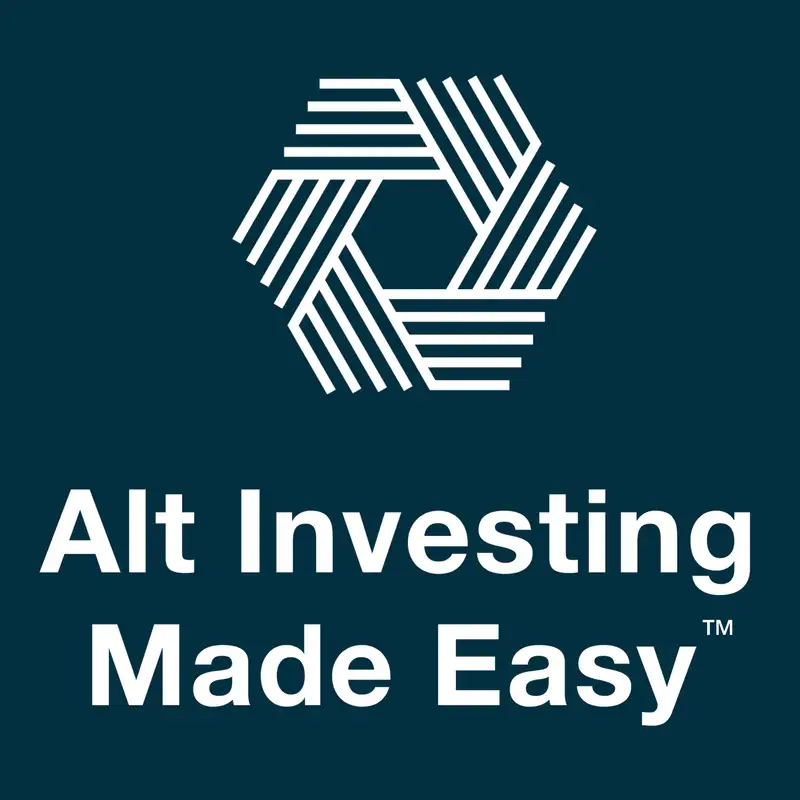E9: Who Can Promote Alternative Assets?
In this episode of 'Alt Investing Made Easy', hosts Roland and Sarah discuss the complexities of alternative investments, focusing on private securities and the regulations surrounding who can offer and sell them. They explore the roles of broker dealers and other parties who can promote investments. They discuss the concept of democratization of capital, emphasizing the need for legal compliance in the investment process. The conversation aims to provide listeners with a deeper understanding of the securities landscape and the various entities involved in alternative investing. In this conversation, Roland and Sarah discuss the complexities of agency problems in business, the evolving role of investment advisors, and the implications of new exemptions under the JOBS Act. They emphasize the importance of understanding compensation models for investment advisors and the need for integrity when evaluating investment opportunities. The discussion highlights the significance of having qualified individuals representing issuers and the necessity of thorough due diligence in investment decisions.
Takeaways
- The only time trouble will arise is if the deal goes bad.
- Alternative investments are often structured as private securities.
- Private securities can be sold under certain exemptions from registration rules.
- Broker dealers must register with the SEC to receive commissions.
- Compensation for broker dealers is based on transaction success.
- Deal size is crucial for determining the involvement of broker dealers.
- Democratization of capital allows more people to invest in private securities.
- Legal compliance is essential in the alternative investment space.
- Natural persons can act on behalf of issuers to sell securities.
- Understanding the roles of associated persons is key in securities transactions. Companies obtain money to do business, which leads to agency problems.
- Understanding who represents a company is crucial for investors.
- Investment advisors play a key role in navigating securities laws.
- New exemptions under the JOBS Act provide opportunities for investment advisors.
- Compensation models for investment advisors can vary significantly.
- Investors should be aware of the integrity of those offering investment opportunities.
- It's essential to ask questions and seek clarity in investment situations.
- The democratization of capital allows more individuals to participate in investing.
- Maintaining communication with investors is vital for successful investments.
- If something seems off in an investment opportunity, further investigation is warranted.
Chapters
00:00 Introduction and Background
03:00 Private Securities and Alternative Investments
08:43 Broker-Dealer Rules and Exemptions
14:45 Opportunities Beyond Broker-Dealers
19:04 Clarifying the Purpose of the Webcast
21:24 The Risks of Illegal Commissions
28:48 The Issuer Exemption: Eligible Individuals
32:56 The Role of a Director of Investor Relations
39:31 Flexibility in Associated Persons of an Issuer
41:14 Compensation Models for Investment Advisors
51:49 The Importance of Alignment of Interests
56:51 The Need for Professional Advice
Creators and Guests

Host
Roland Wiederaenders
Co-founder of the Alt Investing Made Easy podcast, investment advisor, and corporate securities attorney with expertise in private investment funds, corporate/securities issues, mergers and acquisitions, partnership structuring, and federal income tax matters. Roland is also a member of Grable Martin PLLC.

Host
Sarah Florer
Co-founder of the Alt Investing Made Easy podcast, investment advisor, and corporate attorney with expertise in corporate finance and securities, structuring and restructuring, and commercial matters. Sarah is also a member of Grable Martin PLLC.

Producer
Anthony Carrano
Co-founder of the Alt Investing Made Easy podcast, fractional Chief Marketing Officer, entrepreneur, and Managing Partner at Dunamis Marketing.

